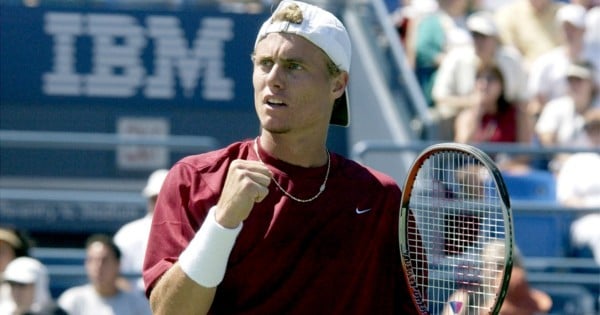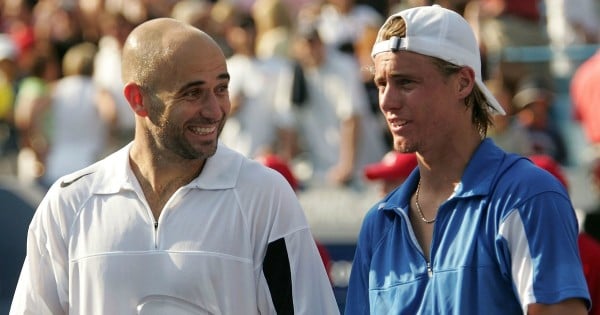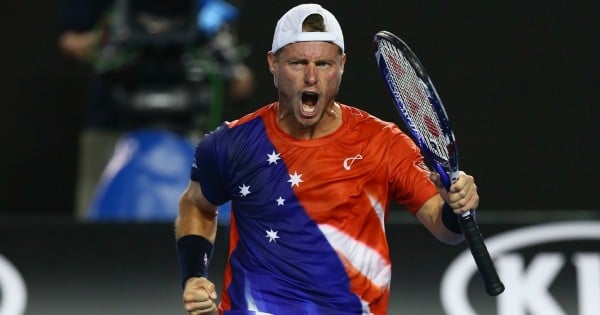
Last night, Lleyton Hewitt played his last game of professional singles tennis. With a wink and a smile to his victorious opponent David Ferrer, he has ended an era. His era.
He went down in straight sets, and as usual, gave 110 per cent. There were points that took an eternity, advantage point after advantage point. “I left nothing in the locker room,” he told the post-match crowd.
He looked exhausted, his shirt wringing wet with sweat.
It’s what we’ve come to expect from him. Remember 2008? The match that finished at 4.33? In the morning? With the birds starting to tweet around Melbourne Park, a younger Lleyton slogged through five gruelling sets against Cypriot Marcos Baghdatis.
It was the latest finish in Grand Slam history. Lleyton won, and in vintage Lleyton form – close sets, a tie break, 4-6, 7-5, 7-5, 6-7 (7-4), 6-3. ‘C’mon!’
Watch highlights from that match here. Video via Channel Seven. (post continues below):
But we won’t see a game like it again.


Top Comments
I think Bec and Lleyton get a rough ride in the media. They haven't really done anything to deserve the relentless attacks. It would actually be quite difficult as a couple to weather. Yeah they are bogans but they're not harming anyone and are far more successful than most so good on them. I think they're kind of sweet, actually.
Well behaved and gorgeous kids too Credit to them both under difficult circumstances travelling around the world non stop.